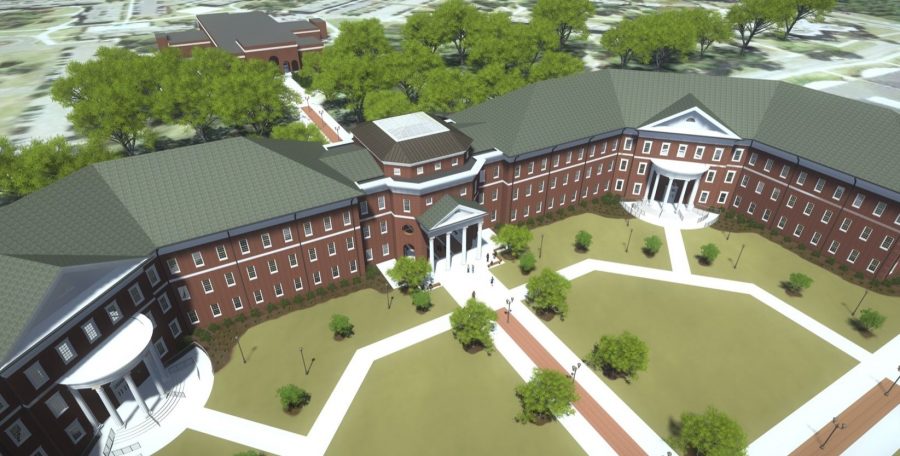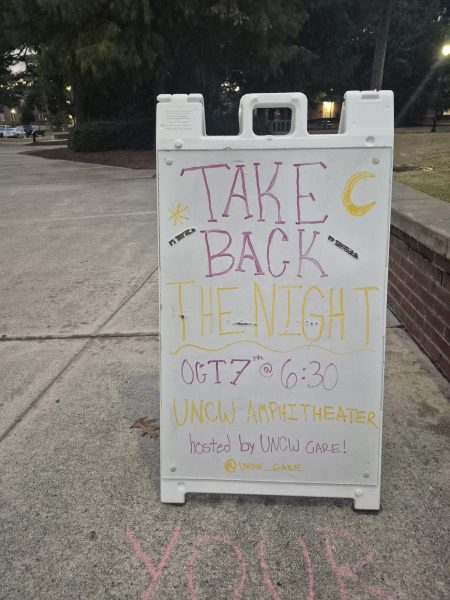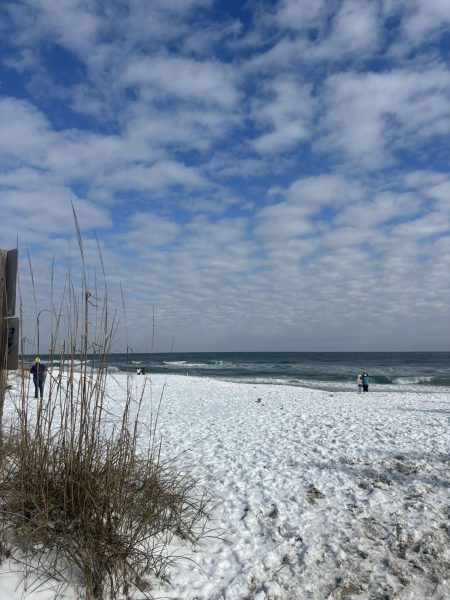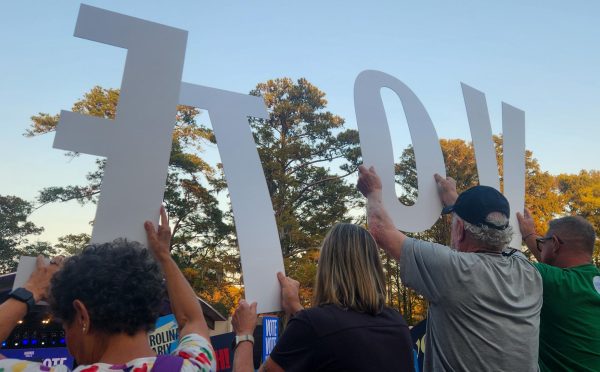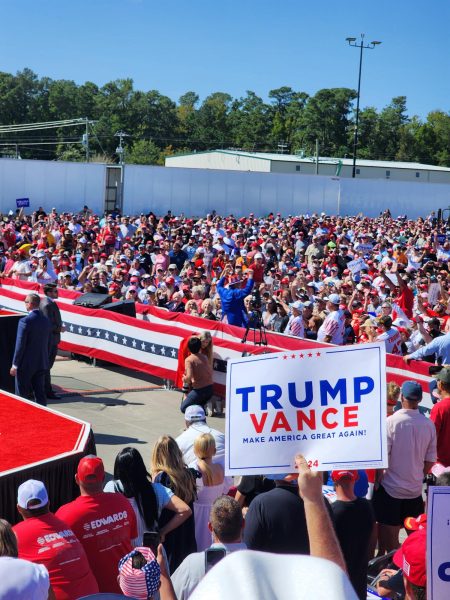“Vote yes to invest” with new Connect NC bond? You will decide.
When North Carolinians go to vote in the March 15 primary election, they will notice a little box titled “Referendum, Connect NC: Public Improvement Bond” at the bottom of their ballot after the names of candidates for various offices.
Boasting the catchphrase “Vote yes to invest,” Connect NC, a two billion dollar bond designed to improve parts of North Carolina’s infrastructure, will be put to the vote in the upcoming primary election, and it could bring sizable changes to UNC Wilmington.
The bond provides money for specific projects in the UNC system, the public community college system, parks, water and sewage, National Guard and public safety.
However, roughly half – $980 million – of the two billion is slated for schools in the UNC system, according to Connect NC’s official webpage.
UNCW, Appalachian State University, East Carolina University, North Carolina State University, North Carolina School of Science and Math, and numerous other schools in the UNC system would all receive money for building or renovating through Connect NC.
“The Connect NC bond referendum, on the March 15 ballot for your consideration, includes $66 million for a new Allied Health/Human Sciences Building at UNCW,” wrote UNCW Chancellor Jose Sartarelli.
The new building funded by Connect NC will be a state-of-the-art facility for classes in and related to the College of Health and Human Services, should the bond pass.
Chancellor Sartarelli and others in UNCW’s administration believe that this large project funded by Connect NC will provide the necessary space to accommodate the rapidly growing College of Health and Human Services.
“The enrollment in the College of Health and Human Services has grown so fast that we know that’s where our biggest need is,” said Mark Lanier, Assistant to the Chancellor. “This building has been the top priority on UNCW’s facilities plan for several years.”
The new building, while not planned or programmed in elaborate detail, will sit across from McNeil Hall and the teaching labs, completing the Health Quad that was included in the 2010 update of the UNCW Master Plan.
It will mirror the style of the other two buildings in the quad and will sit atop Chancellor’s Walk with a walk-through in the middle to allow for pedestrians and bicyclists traveling down Chancellor’s.
The building will house classrooms and laboratory space for health-related topics, not just classes strictly in CHHS.
For example, Lanier said that the space will likely accommodate general chemistry and biology classes, among others in the College of Arts and Sciences that could be University Studies classes for most of the student body.
Lanier explained that moving some classes to the new building could free up space in other buildings, allowing that newly freed space to be reprogrammed to other departments.
Additionally, the building could include student support space as well as a designated space for the growing number of military-affiliated students, ensuring that all of UNCW could benefit from the new building, not just those in health-related majors.
Connect NC has money earmarked for various other projects in New Hanover county, in addition to the UNCW project.
The official final bond project list includes roughly $6 million for Cape Fear Community College to implement new construction, repairs and renovations, as well as $1.1 million to the Fort Fisher State Recreation Area and $855,000 to Carolina Beach for unspecified projects.
The last bond of this sort was approved by voters 15 years ago, and many in North Carolina’s legislature believe that North Carolina is long overdue for another one, especially since the state’s population has grown by roughly two million people since the last bond in 2000.
The bond was first put forth by Governor Pat McCrory roughly two years ago, and it originally was considerably larger: about one billion dollars larger, in fact.
Connect NC got its name from the $1.2 billion geared to improve North Carolina’s transportation, but when put to the vote in North Carolina’s Legislature, senators voted to remove the $1.2 billion for transportation and save the topic for a later date, arguing that $1 billion would not make a dent in the needs of NC transportation, according to Lanier.
Only then was the bond passed by the North Carolina General Assembly to go to the March 15 primary.
Some wonder why the bond still goes by the name “Connect NC,” when the moniker was coined as a reference to the roads it originally was meant to provide.
“Well, [the name] did initially just mean roads… but it also meant connecting North Carolina to the future, and that’s what we’re doing,” says Lanier.
However, voters are typically more concerned about the financial impact of the referendum rather than its name, including the addition of two billion dollars to the state debt.
In a recent Civitas poll, 67 percent of Democrats and 76 percent of Republicans said that they thought taxes would rise if Connect NC passes.
But on Connect NC’s webpage, Governor Pat McCrory insists that taxes won’t rise.
“No tax increases are necessary to finance the bond, given our strong revenue growth and ample debt service capacity,” wrote Governor McCrory.
Compared to other issues currently circulating through political spheres, Connect NC has relatively bipartisan support. However, a smaller percentage of Republicans than Democrats say they are in favor of the referendum.
In the Civitas poll, a majority of likely Democrats and only a plurality of Republicans said they planned to vote in favor of the bond.
A potential cause for contention could be the specific projects within the bond. Over 130 projects across 76 counties will be funded if this bond passes on March 15, and these projects are largely final aside from some small tweaks that could occur once detailed planning begins.
“There will probably be some minor adjustments once you start getting into projects,” Lanier says. “Because a lot of these projects, like UNCW’s project, have not gone through pre-planning… but any of those changes will have to get legislative approval.”
“How much do we want the projects funded by the bonds?” asks N.C. State University professor Mike Walden in an article about Connect NC for NCSU’s College of Agriculture and Life Sciences News Center. “Do we want them now, or can we wait until later? This is our big ‘you decide.’”
In the end, the approval of this bond is up to the voters in the March 15 primary election.



